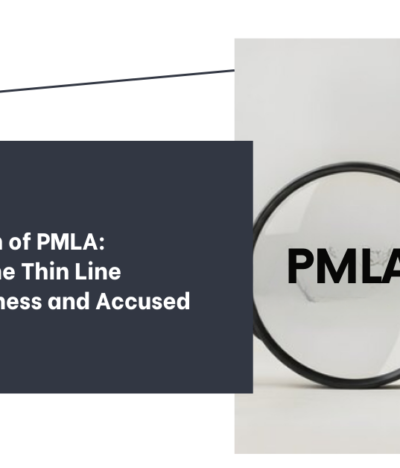Introduction:
In today’s rapidly evolving property landscape, it is essential for landowners, prospective buyers, and legal professionals to stay informed about the laws that can significantly impact their ownership rights in the property. One such area that has repeatedly come under public and judicial scrutiny is the issue of ‘adverse possession.’ With an increase in property-related disputes and encroachment cases, courts have been called upon to re-examine the fairness and implications of these long-standing legal principles related to property disputes. As questions of justice, fairness, and legal clarity w.r.t. ownership rights in properties continue to emerge, understanding the existing legal framework, judicial trends, and practical safeguards has become more important than ever.
Meaning of Adverse Possession:
The issue of ‘Adverse Possession’ has been clarified, over the years, through plethora of judgments and legislative amendments. Adverse possession refers to acquiring an immovable property through continuous and uninterrupted possession over a definite period, without having any title over such property. The doctrine is grounded in the principle expressed in latin maxim vigilantibus nondormientibus subvenit lex, meaning the “law aids the vigilant, not those who sleep over their rights”. In essence, the doctrine of ‘Adverse Possession’ is based on the theory that the law protects only those who actively assert their rights within the time prescribed under law. Adverse possession acts as a reminder that in the matters of immovable property, mere ownership on paper is not sufficient, one needs to actively assert his rights over the property, within prescribed period of time from when the possession of property has been adversely taken by a third party.
Adverse Possession under Limitations Act, 1963:
In Indian laws, there is no provision that explicitly mentions the doctrine of Adverse Possession, however, Section 27 and Articles 64-65 of the Limitations Act, 1963, discusses the specified time period within which a suit against wrongful possession is required to be filed. In this backdrop, it is relevant to reproduce the said provisions hereinbelow:
“Section 27: Extinguishment of right to property- At the determination of the period hereby limited to any person for instituting a suit for possession of any property, his right to such property shall be extinguished.”
A bare perusal of aforesaid provision makes it clear that if a person fails to file a suit against the wrongful possession of his property within the limitation period, then the right to file the suit against adverse possession is extinguished.
Perusal of the aforesaid Articles 64 and 65 of the Limitation Act, of 1963, provide the limitation period for suits regarding possession of immovable property, both the Articles can be invoked in separate scenarios i.e. one where the possession is sought based on previous possession and not the title and second scenario where the possession is sought based on title or any interest therein. Article 64 refers to suits based on prior possession without title, requiring the plaintiff to prove dispossession within 12 years from the date of such dispossession. Article 65 applies to suits based on ownership title, where the plaintiff must establish their title, and the burden of proof lies on the defendant to prove that their possession became adverse to the plaintiff’s title and continued uninterrupted for 12 years.
Requirements for claiming adverse possession in India:
- Continuous and Uninterrupted Possession: Any possession over immovable property qualifies as Adverse Possession only when it is continuous and uninterrupted, without such person having any title or previous possession. The cases where the possession has been interrupted by the original owner do not come under the ambit of Adverse possession.
- Possession for a definite period: The possession should be continuous for a definite period of 12 years for a property owned by private individual and 30 years in case of property owned by government.
- Hostility towards the original owner: The rights of the original owner must be completely disregarded through the possession. The possessor must use the property in complete disagreement with the owner. The owner should be aware of the possession. In Brijesh Kumar and Anr v. Shardabai (Dead) by Legal Representatives and Ors (2019) 9 SCC 369:(2019) 4 SCC (Civ)509, the Hon’ble Supreme Court noted that to constitute adverse possession there must be an assertion of a hostile possession in denial of the title of the true owner. The onus would be on the respondent to prove the nature of the possession.
- Peaceful possession: The possession must be peaceful. If the possession is obtained through coercion or force then possession cannot be said to be adverse. In Ravinder Kaur Grewal v. Manjit Kaur, (2019) 8 SCC 729: (2019) 4 SCC (Civ) 453, the Hon’ble Supreme court explained that the adverse possession requires all the three classic requirements to co-exist at the same time, namely, nec vi i.e. adequate in continuity, nec clam i.e. adequate in publicity and nec precario i.e. adverse to a competitor, in denial of title and his knowledge. Visible, notorious, and peaceful so that if the owner does not take care to know notorious facts, knowledge is attributed to him on the basis that but for due diligence he would have known it.
Challenges and Criticism of Adverse Possession:
Although laws in India aim to strike a balance between the rights of possessors and original owners, they have been criticized for occasionally delivering unfair outcomes that cause prejudice to the rightful owners. The doctrine, in some cases, may unconsciously reward trespassing while discouraging rightful owners from safeguarding their property. Moreover, the inherently subjective assessment of ‘hostile’ possession and the risk of fraudulent claims complicate the fair and consistent application of the law. Ensuring a just equilibrium between the protection of property rights and the prevention of unjust enrichment continues to be a persistent challenge for the Indian legal system. In Hemaji Waghaji Jat v. Bhikhabhai Khengarbhai Harijan, (2009) 16 SCC 517: 2008 SCC OnLine SC 1439 the Hon’ble Supreme Court criticized the adverse possession as being highly unfair to the original owner of the property. A possessor who acquires property illegally may still benefit from adverse possession, leaving the rightful owner without remedy. The Court has therefore called for a review of the law to strike a fairer balance.
How can owners protect themselves from Adverse Possession:
- Regularly visit and inspect the property: Make sure to check the property often so no one else starts using it without permission.
- Fence and mark boundaries: Put up a fence to show others that the land is private property.
- Legal Action: File complaint against the encroachment promptly.
- Written Agreements: When allowing others to occupy or use the immovable property, a written lease agreement should be executed to define legal rights and responsibilities.
Conclusion:
The doctrine of Adverse Possession is not intended to encourage land grabbing or fraudulent claims. Instead, it serves as a legal reminder that ownership is not just about documents but also about the active and continuous use and protection of property rights. While courts have raised concerns about its misuse and unfair consequences, the law continues to recognize adverse possession as valid if all legal conditions are strictly met.
For landowners, being aware of their rights and responsibilities is crucial. Regular inspection of property, keeping legal documents updated, and taking timely legal action in case of encroachment are important steps to avoid losing ownership due to inaction. Knowing the law helps property owners protect their interests and take informed decisions when disputes arise. As legal awareness increases, individuals will be better equipped to safeguard their property and prevent misuse of legal doctrines like adverse possession.
Author: Mahima Rathore, Associate
Co- Author: Saksham Yadav, Legal Intern






